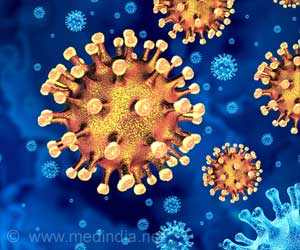said the team from the Yonsei University Wonju College of Medicine, in Wonju, South Korea.
“The findings suggest that autoimmune and autoinflammatory connective tissue disorders may manifest as post-COVID-19 sequelae, highlighting the potential long-term health ramifications associated with COVID-19,” the researchers in the paper.
“Long-term management should include evaluating the development of such disorders in patients who had COVID-19,” they added.
The cohort study included 3,54,527 individuals with COVID-19 and 6,134,940 controls identified a significant elevation in the risk of multiple incident autoimmune and autoinflammatory disorders after COVID-19.
Advertisement
The risks of alopecia areata (adjusted hazard ratio [aHR] was 1.12), alopecia totalis (aHR of 1.74, antineutrophil cytoplasmic antibody-associated vasculitis (aHR, 2.76), Crohn disease (aHR, 1.68), and sarcoidosis (aHR, 1.59) were higher in the COVID-19 group.
South Korean Research on Post-COVID
The diseases’ link with COVID-19 suggests the existence of a common pathway, which may involve excessive cytokine storms leading to prolonged autoimmune responses that trigger specific underlying pathophysiology of each disease.
The researchers said that due to the potential involvement of SARS-CoV-2 infection in cardiopulmonary failure, extensive evaluation of cardiovascular and respiratory outcomes following COVID-19 infection has been conducted.
Although similarities between COVID-19 and several autoimmune diseases have been suggested, a comprehensive evaluation of autoimmune or inflammatory diseases as post-acute COVID-19 sequelae has not yet been established.
“Taken together, surveillance for the new development of autoimmune and autoinflammatory diseases for the myriad of COVID-19 survivors globally is suggested,” the researchers said.
Reference :
- Autoimmune and Autoinflammatory Connective Tissue Disorders Following COVID-19
– (https://jamanetwork.com/journals/jamanetworkopen/fullarticle/2810259)
Source: IANS



